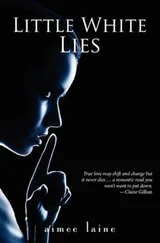Horiana is adamant. ‘No, it’s him who’s the problem,’ she answers.
‘You will need stitches,’ Paraiti says. She makes a thread of muka and uses a wooden needle to sew the skin together. As a dressing, she applies the ash from a burnt flax stalk. Throughout all this, the young man does not flinch. He’s a cheeky one, though; just before he leaves he asks, ‘Scarface, you couldn’t throw in a love potion with the treatment, could you? My wife’s still angry with me and won’t let me perform my customary and expert lovemaking duties.’
Paraiti’s eyes twinkle. ‘Oh really? I have heard otherwise about your lovemaking. Do you think it might be the beer that is putting you off your stroke? No love philtre is required. Your wife will eventually forgive you and soon you will plough her in your usual diligent and boring manner, the poor woman. But if you must drink, chew puwha gum — it will mask your breath when you go home at night.’
Another young man comes in, but, as soon as he sees Paraiti, he changes his mind and goes out. He is embarrassed because he has a venereal disease. Then a young woman with shell splinters in the heels of her feet requires a little more care; she carelessly ran across a reef while gathering pupu and mussels. ‘I was being chased by a giant octopus,’ she tells Paraiti.
Paraiti winks at Horiana. ‘Oh yes, and what was his name?’ She cuts around the wound until the pieces of shell can be seen. Smiling at the young woman, Paraiti then lowers her head. ‘Here is the kiss of Scarface,’ she says. She bites on each piece of shell and pulls it out. ‘If your octopus really loves you and wants to ensnare you in his eight arms, and if that causes you to run over shells again, show him how to use his own teeth.’
The next patient causes some hilarity. He has constipation and hasn’t had a good bowel movement for days. ‘I have just the right potion,’ Paraiti tells him. ‘Crushed flax roots and, here, if you disrobe, I will also blow some potion into your rectum so that the result comes quicker.’
But the patient’s wife is with him. ‘Oh no, you don’t! If anybody is to disrobe my husband and blow anything up his rectum, it will be me! Do I want the whole world to know how awful a sight his bum is? Best for him and me to keep that treasure a family secret.’
So it goes on throughout the remainder of the day; each patient pays Paraiti in coin or in food — a koha, no matter how small. However, there are some who lack obvious symptoms and whose treatment cannot be diagnosed with ease. With such patients Paraiti takes a history of their activities before they became ill and, if she suspects an answer, administers a likely remedy: harakeke to cleanse the blood, kaikaiatua as an emetic or huainanga to expel tapeworms. If she is still unsure, and if the person has a temperature, she advises them to drink lots of clean water and gives them a herbal mixture which will alleviate the pain or combat their fever. ‘Sometimes,’ she tells them, ‘the body has its own way of making itself well again. Time will tell.’
There are other patients whom Paraiti will treat separately, away from the clinic at Horiana’s house, because their conditions are more serious. One is a young girl with an eye condition that bespeaks oncoming blindness. A second is an old koroua with a debilitating illness; nothing can cure old age, but, as she often did with her father, Paraiti will give this old man a good massage and a steam bath for temporary relief. He is already walking towards God.
The time comes to stop work for the day. ‘Come back tomorrow,’ Horiana tells the other people waiting in line. They are disappointed, but another day won’t hurt them.
‘But I will see the mother,’ Paraiti says, pointing to a woman waiting with her daughter. She has constantly given up her place in the line to others.
‘Thank you, takuta,’ the mother says respectfully as she steps into the tent. She is trying to hide her distress. ‘Actually, I do not come for my own sake but on behalf of my daughter, Florence. Do you have something that will enable her to keep her baby? She can never go to term and loses the baby always around the third month.’
Paraiti notices how small Florence is. She places her hands on the girl’s stomach. E hika, this girl is very cold. ‘How many times have you conceived?’ Paraiti asks her.
‘Three,’ Florence replies, ‘and three times my babies have died inside me. But I really want this child.’
Paraiti takes a look at the girl. She smells her breath; aue, she smokes the Pakeha cigarettes. She looks at her eyes; they are milky and clouded, and her fingernails and toenails are brittle and dry. Finally, Paraiti feels with her fingers around the girl’s womb — again, so cold. She speaks, not unkindly, to the girl.
‘A baby in the womb is like a kumara being fed nutrients from the vine of your body. But your vine is not giving your baby the right foods. Your circulation is sluggish and, therefore, the nourishment is not getting to the child. Bad foods and bad vine are the reasons why, in the third month, your baby withers and dies. Also, the garden in which your baby grows is not warm.’
Paraiti looks at Florence’s mother. ‘I will put your daughter on a diet, which she must follow without straying from it,’ she tells her. ‘The diet is rich in nutrients. I will also put her on a regime of exercise that will improve her circulation. Florence must stop smoking Pakeha cigarettes immediately. Also, it is important that her blood temperature is increased. I will show you a special massage to make her body a whare tangata that is nice and cosy. Keep to the diet, the massages, and encourage your daughter to spend as much time as possible in the sunlight. Make sure she eats vegetables and fruits and fish, especially shellfish.’
The mother holds Paraiti’s hands and kisses them. ‘Thank you, takuta.’
Paraiti sees them to the flap of the tent. ‘I will also give you some herbs that will improve Florence’s health while she is with child.’
‘Will you attend the birth?’ the mother asks.
‘No,’ Paraiti answers. ‘The authorities will not allow it.’ She turns to Florence. ‘Go well, and be assured that if you follow my instructions, the birth should be normal and you will be delivered of a healthy child.’ She kisses Florence on the forehead. ‘What greater blessing can any woman have than to give birth to a son or daughter for the iwi? Will you let me know when the baby is born? Ma te Atua koe e manaaki.’
This is Paraiti’s world. Dedicated to the health of the people, she is a giver of life. But recently she has been presented with a dilemma.
As she closes her clinic in Ruatahuna for the day, her thoughts fly back to a request she received just before leaving Waituhi.
She was asked to take life, not to give it.
This is how the request happened.
In the middle of packing for her annual trip, a thought popped into Paraiti’s head: ‘I think I’ll ride into Gisborne and go to the pictures.’ Just like that the thought came, and the more she pushed it away, the more it pushed back: be kind to yourself, mistress, take a day off.
Truth to tell, Paraiti didn’t need an excuse to go, so she made one up: she would buy some gifts for all the women who would be helping at her clinics on her travels. Horiana wasn’t the only one, but for Horiana especially she would get her some of those Pakeha bloomers that would keep her nice and cool in the summer.
Paraiti got up at the crack of dawn, dressed in her town clothes, saddled Ataahua and, with Tiaki loping ahead, set off for Gisborne. She stopped for a picnic lunch by the Taruheru River, watching as cattlemen approached, herding a new breed of Pakeha cows along the side of the river: farms were springing up quickly, the settlers hastening to take advantage of the rich pasture land. Then she realised, e hika, that she didn’t want to complete her journey riding in the wake of the herd’s dust and smell of cow shit. Time to move on.
Читать дальше












